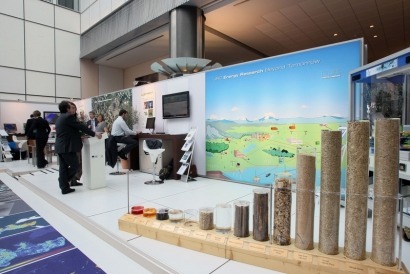
Presenting Horizon 2020, Commissioner for Research, Innovation and Science Máire Geoghegan-Quinn said: "We need a new vision for European research and innovation in a dramatically changed economic environment. Horizon 2020 provides direct stimulus to the economy and secures our science and technology base and industrial competitiveness for the future, promising a smarter, more sustainable and more inclusive society”.
According to a European Commission press release Horizon 2020 will bring together all EU research and innovation funding under a single programme for the first time. It focuses more than ever on turning scientific breakthroughs into innovative products and services that provide business opportunities and change people’s lives for the better. At the same time it drastically cuts red tape, with simplification of rules and procedures to attract more top researchers and a broader range of innovative businesses.
Horizon 2020 will focus funds on three key objectives. It will support the EU’s position as a world leader in science with a dedicated budget of €24.6 billion, including an increase in funding of 77% for the very successful European Research Council (ERC). It will help secure industrial leadership in innovation with a budget of €17.9 billion. This includes a major investment of €13.7 billion in key technologies, as well as greater access to capital and support for SMEs. Finally, €31.7 billion will go towards addressing major concerns shared by all Europeans, across six key themes: Health, demographic change and well-being; Food security, sustainable agriculture, marine and maritime research and the bio-economy; Secure, clean and efficient energy; Smart, green and integrated transport; Climate action, resource efficiency and raw materials; and Inclusive, innovative and secure societies.
International cooperation will also be further promoted in Horizon 2020, in order to strengthen the EU's excellence and attractiveness in research, to tackle global challenges jointly and to support EU external policies.
The Joint Research Centre (JRC), the in-house science service of the European Commission, will continue providing scientific and technical support to EU policy making on everything from environment, agriculture and fisheries through to nanotechnology and nuclear safety.
2020 targets at risk
Despite funding for non-nuclear energy R&D double in the new research budget proposed yesterday, the European Wind Energy Association (EWEA) says the additional funds “are nothing like enough to fund what the European Commission says is necessary to achieve its 2020 targets”.
Under the proposal, all non-nuclear energy gets only 7.5% of the research budget – €6.5 billion out of the total of €87.7 billion. Nuclear alone gets €1.8 billion for just five years under Euratom - as well as additional funds for ITER (and even a slice of the SET Plan).
“R&D for low-carbon technologies (contained in the SET Plan as part of the €6.5 billion for non-nuclear energy) appears to be severely underfunded in the proposal,” said EWEA in a press statement issued shortly after Horizon 2020 was announced.
EWEA highlights that the European wind industry was counting on €1.3 billion of EU research funding for wind, but yesterday’s announcement makes that “impossible”. Even the full €6.5 billion for non-nuclear energy (of which the SET Plan is only a part) is not enough to cover all SET Plan needs, it says.
The Commission's 'Proposal for a Regulation on Horizon 2020' published yesterday acknowledges that "the resources required to implement the SET Plan in full have been estimated at €8 billion per year over the next 10 years”.
"The EU has missed an opportunity to make its R&D budget reflect new European priorities," comments Vilma Radvilaite, EWEA's Regulatory Affairs Advisor.
"The European Commission is proposing that the EU abandons its political commitment to fund the SET Plan, and risks allowing China, South Korea, Japan and the US to take the lead in renewable energy technology development," she adds.
[Photo: JRC open day]
For additional information:

